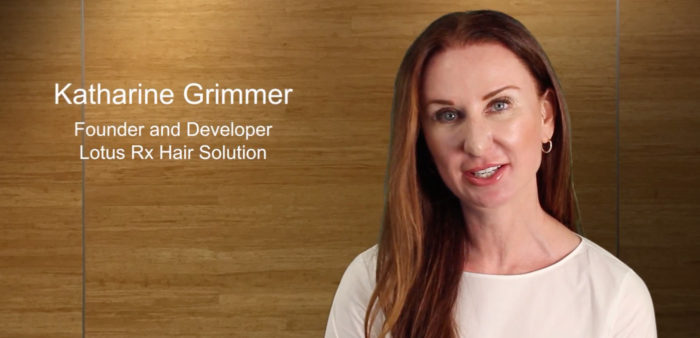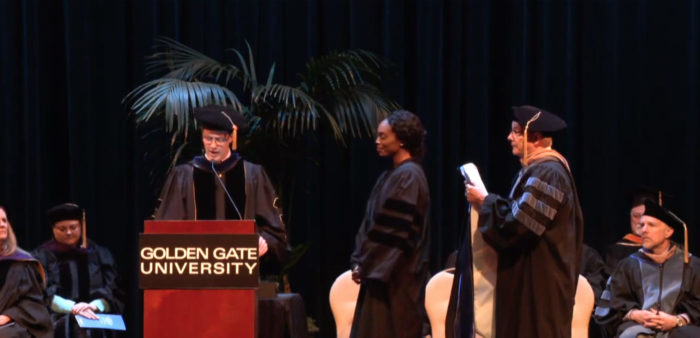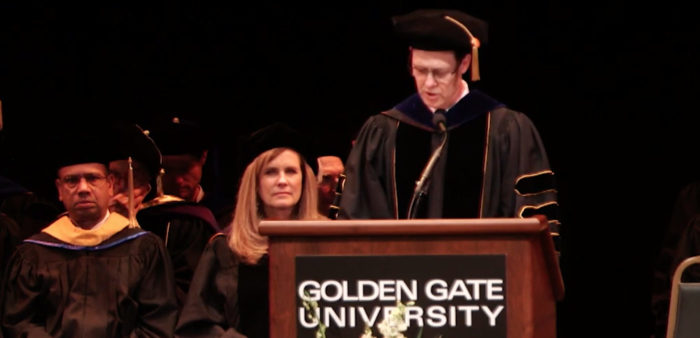
Undergraduate Hybrid Courses Offer More Flexibility
The undergraduate program is piloting a roll-out of hybrid courses that enable students to attend classes either in-person or online.
This January, GGU is rolling out 13 hybrid courses for undergraduate students including Humanities 50, Philosophy 50, Communications 35, Organization Leadership and Human Skills Development 110, Accounting 1A, and a new cannabis course. These courses enable students to attend synchronous class sessions, or classes that occur live in real-time, either in-person or online. While the university already offers graduate hybrid courses, these are the first undergraduate courses to feature the new format.
In the new courses, students may be required to attend certain class sessions in-person, but have the option of attending most sessions in-person or online.
Benefits of Hybrid Courses
“Our hybrid courses offer greater flexibility around how many times students are required to attend classes in-person, explains Marc Singer, Dean of the GGU School of Undergraduate Studies. “These options will create opportunities for everyone to get the courses they want and complete their programs on their own timeline.”
Hybrid courses mirror the practice of meetings in the modern workplace in which some attendees are in person and others join via a video conferencing platform.
“We want to reflect what students will encounter in the outside world after they get their degree,” said Singer.
Innovative Learning Tools
Undergraduate courses also incorporate universal design elements that allow people with disabilities to access material, and other career-focused opportunities that benefit students, such as the mentoring program. Currently, GGU’s mentorship program is integrated into signature assignments in Gateway to Success (UGP 10), which is taken in the first term of an undergraduate student’s program at GGU.
Portfolium, an electronic portfolio where students can compile work samples, is another innovative feature that’s integrated into UGP 10. Students can add examples of their academic work and continue to use their digital portfolio after they leave GGU. The portfolio helps students brand themselves and showcase their accomplishments to potential employers once they’ve received their degree.
“Going forward, we may expand our hybrid offerings beyond these six courses. We’re also looking at collaborative workspaces within digital platforms so that students can meet synchronously online as part of homework requirements,” said Singer. “We’d like to facilitate collaboration across sections that enable students to add to bodies of knowledge using discussion boards or other tools. This is an opportunity for us to explore different kinds of assignments, course formats, and digital tools that prepare students for leading edge careers.”






